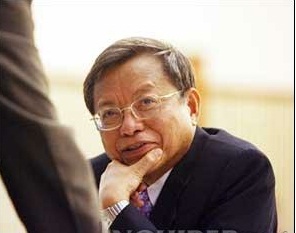Miners want to answer mining foes in SC
MANILA, Philippines—The Supreme Court will resume Tuesday hearing oral arguments on the petitions against the Mining Act of 1995 as retired Chief Justice Reynato Puno and retired Supreme Court Associate Justice Vicente Mendoza asked the high court to allow the Chamber of Mines to intervene and take part in the proceedings.
Puno and Mendoza serve as counsel for the Chamber of Mines, a group of mining companies opposed to two petitions filed by former Akbayan party-list Rep. Risa Hontiveros, other lawmakers and residents of some Mindanao provinces.
In their two petitions, Hontiveros’ group challenged the constitutionality of Sections 80 and 81 of Republic Act No. 7942, or the Philippine Mining Act of 1995, as well as administrative orders issued by the Department of Environment and Natural Resources.
The petitions said the two sections of the Mining Act were unconstitutional because they allowed for the inequitable sharing of wealth from mining, especially for the government, and the government share was limited to excise taxes. At present, the government takes a limited share of the revenue from mining contracts—a two-percent excise tax and five-percent royalty.
Second round
Article continues after this advertisementThe high court is set to resume Tuesday the second round of oral arguments on the Anti-Mining Act petitions two months after it first held a hearing in Baguio City on April 16.
Article continues after this advertisementIn a three-page motion for intervention filed on June 19, the Chamber of Mines sought to intervene and participate in the oral arguments but asked the high court to hold it “sometime in August 2013.”
The chamber’s motion for intervention cited the absence of Mendoza, who will argue for the chamber. Mendoza had to go abroad and “will not be back until the end of July,” it said.
It also asked the high court to admit its comment in intervention.
In its 38-page comment in intervention, the Chamber of Mines asked for the dismissal of the petitions for certiorari and prohibition filed by Hontiveros and her copetitioners, citing three reasons.
These were: That the arguments raised by petitioners had already been passed upon and disposed of against petitioners in the case La Bugal-B’laan Tribal Association v Ramos, which the Supreme Court made a landmark ruling; that the high court should stand by its ruling here; and that the legislative and executive branches should decide on the question of what is an equitable revenue sharing from mining.
Landmark ruling
The landmark ruling of the Supreme Court had to do with a Financial and Technical Assistance Agreement (FTAA) that then President Fidel Ramos had entered into with an Australian company.
On Jan. 27, 2004, the high court struck down major provisions of the Mining Law for violating the Constitution, which requires that the state should have full control and supervision of the development of natural resources.
But on Dec. 1, 2004, the high court reversed its ruling and upheld the law, regulations and FTAAs, provided that full control remained with the President.
“The Honorable Court should stand by its prior decision in La Bugal B’laan. In accordance with Article 8 of the Civil Code, the decision in La Bugal B’laan is not only ‘the law of the case,’ but the law,” the chamber said.
The chamber also said the petitioners had not shown any compelling reason to abandon the La Bugal B’laan case as it described their arguments to be a “mere rehash of those already overruled” in the same case.
It also held that there was no actual case or controversy in which to relitigate the case and that petitioners did not complain that they had been injured because of these provisions.
